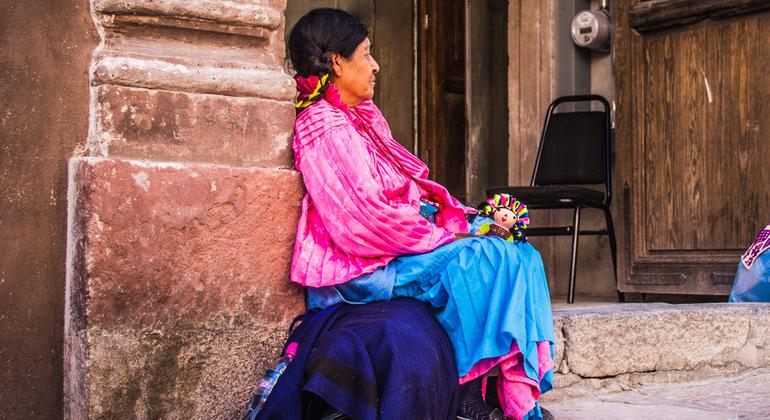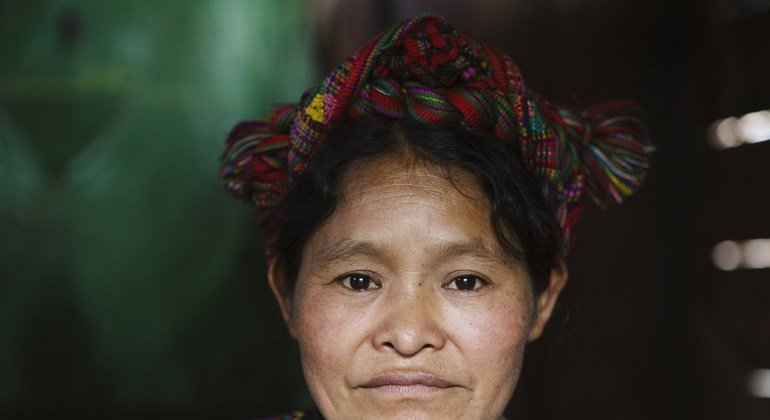The United Nations Committee on the Elimination of Discrimination against Women (CEDAW) on Thursday urged States to develop and immediately implement comprehensive policies that truly protect the human rights of indigenous women and girls all over the world.
In a new guideCEDAW denounces the numerous violations and abuses of fundamental guarantees that indigenous women and girls still suffer and finds discrimination unacceptable that they suffer and that prevents them from enjoying freedoms and services as basic as access to health or education.
The president of the Committee, Gladys Acosta-Vargas, maintained that indigenous women and girls are disproportionately affected by gender violence, inequality and discrimination.
“And they continue to be harassed by a limited access to justice, education, decent employment and health caresimply for being who they are,” lamented Acosta-Vargas.
The most recent censuses indicate that the world’s indigenous population is 476.6 million and that more than half, or 238.4 million are women and girls.
gender violence
The Committee noted that these women suffer Cross forms of discrimination linked to sex, gender, indigenous status and other characteristics and factors, and highlighted violence as one of the main manifestations of that discrimination.
She specified that gender-based violence against indigenous women and girls It encompasses psychological, physical, sexual, economic, spiritual, political and environmental violence.
He explained that these women face domestic violence and violence in the workplace, public and institutional, and that they are attacked while receiving health services and navigating child welfare systems, as well as when they participate as leaders in political and community life or when defending human rights. Abuses also occur when they are deprived of liberty or confined to institutions.
Excessive risk of rape and sexual harassment
The 23 members of the Committee warned that indigenous women and girls are at excessive risk of rape and sexual harassment; gender-based homicides and femicides; disappearances and kidnappings; human trafficking; contemporary forms of slavery; exploitation; prostitution; sexual slavery; forced labor; forced pregnancies; and state policies that mandate forced contraception, among other abuses.
For CEDAW, discrimination against indigenous women and girls is anchored in the lack of implementation of their rights to self-determination and autonomy, and cites as an example of this the continuous dispossession of lands, territories and natural resources to which they are subjected.

Lack of participation and forced assimilation
“The Committee recognizes that the link between indigenous women and their lands it is often the basis of their culture, identity, spirituality, ancestral knowledge and survival,” the document points out, adding that governments and other actors often undertake investment, infrastructure, development or resource exploitation projects in their territories without ensuring the participation effective or obtain the consent of the indigenous peoples affected.
It also lists the struggle of indigenous women and girls against policies of forced assimilation and other large-scale human rights violations, which in certain cases can amount to genocide.
State obligations
In this regard, the Committee argued that it is essential that States address the consequences of historical injustices and provide support and reparation to the affected communities “as part of justice, reconciliation and the process of building societies free of discrimination and gender-based violence against indigenous women and girls.”
Similarly, it emphasizes the need for States to dedicate special attention to the protection of the rights of this population group when they live in urban environmentss, since that increases exposure to racism, discrimination, assimilation policies and gender violence.
CEDAW also calls for the effective participation of indigenous women and girls in decision-making and advocates for their inclusion in state institutionsalways respecting their cultures, identities and traditions.
“Discrimination against indigenous women and girls is unacceptable and must be addressed substantively by all States. removing all structural barriers they face and ensuring that their individual and collective rights are fully respected,” the Committee stressed.
States must protect indigenous women and girls from discrimination

